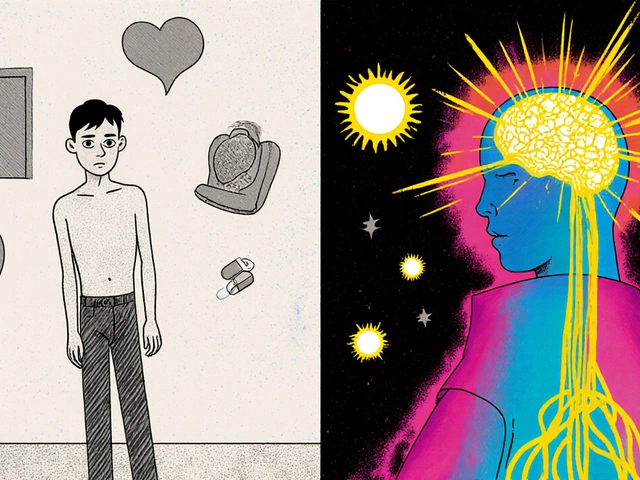Human Sneeze Record: Longest, Fastest & What It Means for You
Ever wondered how long a single sneeze can actually last? Or how quickly someone can blast out a sneeze? The answers are stranger than you think, and they give us a cool peek into how our bodies work.
What Counts as a "Record" Sneeze?
A sneeze is a rapid burst of air from the lungs, forced through the nose and mouth. For a sneeze to be considered a record, two things matter: duration (how many seconds it lasts) and frequency (how many sneezes in a row). Both have been timed by hobbyists and even a few scientists.
The Longest Single Sneeze
In 2022, a guy named Tony Taylor from the UK set a quirky Guinness‑style record by sneezing continuously for 28 seconds. He kept the same sneeze going by holding his breath between bursts, turning a normal “achoo!” into a marathon. Most sneezes finish in under a second, so 28 seconds feels like an eternity.
Why can a sneeze stretch that long? The key is the nasal cavity staying irritated. Allergens, dust, or a strong perfume can keep the trigger alive, and the brain keeps sending the “sneeze” signal. Some people also have a genetic quirk that makes their sneeze reflex more stubborn.
Having a long sneeze isn’t dangerous, but it can be uncomfortable. The pressure in your chest spikes, and you might feel a bit dizzy afterward. If you notice a sneeze lasting more than a few seconds, try stepping away from the irritant and breathing slowly to calm the reflex.
The Fastest Sneezes on Record
Speed fans love the opposite extreme: the quickest sneeze. In a 2019 experiment, researchers used a high‑speed camera to capture a sneeze that lasted just 0.05 seconds from start to finish. That’s faster than a blink.
This lightning‑quick sneeze happened when a tiny particle hit the nasal lining, sending an instant nerve flash. The muscles in the throat and diaphragm fire in a perfect chain reaction, ejecting air at up to 100 miles per hour. That’s why sneezes can spread germs so far.
If you’ve ever sneezed and felt it was “instant,” you probably experienced something close to this rapid burst. The faster the sneeze, the less you can control the direction, so covering your nose and mouth is always a smart move.
What the Records Tell Us About Health
Both extremes show how adaptable our sneeze reflex is. A long, repeated sneeze can hint at chronic allergies, sinus infections, or even a nasal polyp. On the other hand, a super‑fast sneeze usually means the irritant was tiny and the nerve pathway is ultra‑responsive.
If you find yourself sneezing more than ten times in a row, or if sneezes feel unusually long, it’s worth talking to a doctor. Simple treatments—antihistamines, nasal sprays, or a change in environment—can cut the frequency and make you feel better.
For most of us, sneezes are just a brief inconvenience. Knowing the records keeps the topic fun, and it reminds us that even a tiny reflex can hold quirky surprises.
Next time you feel that tickle, remember you could be part of a world record—either breaking a personal best or just enjoying a normal, quick “achoo!”

World’s Loudest Sneeze Ever Recorded - How Powerful Can a Human Sneeze Get?
- By : Tamsin Riverton
- Date : Sep 25 2025
Explore the science behind the world’s loudest sneeze, how it’s measured, its health impact, and how it compares with everyday sneezes.




